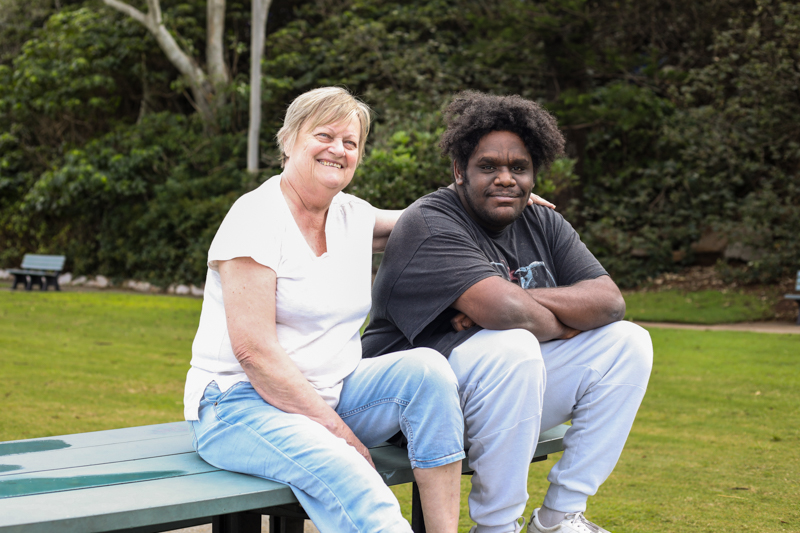
Maria, who lives in Brisbane, has cared for countless babies in her time as a carer. Maria was previously a nurse and provided care for young babies who were born requiring special attention and lengthy periods in hospital. During these times of care Maria became aware that some children were no longer able to return to their families and she was introduced to the idea of becoming a foster carer.
“I worked as a midwife at the Mater Hospital,” said Maria.
“We had a very busy time in the nursery … one of the babies I was looking after was a little premature baby, who was on oxygen,” said Maria.
Maria formed a bond with this little baby, Charlie, who was in hospital for 8 months. “I was really good friends with Charlie’s First Nations great grandmother … it was extremely hard to find someone who was capable of looking after him because he needed oxygen daily and had lots of clinical appointments.”
That was in 2004 and after no First Nations carer or family could be found to care for Charlie, Maria put up her hand. “I said, ‘I’ve got a spare room, I could look after him’ and so I was approved as a kinship carer and he came home with me. His great grandmother was very keen with him staying with me because he knew me, he knew everyone around me,” said Maria.
After the little one started school Maria resigned so that she could be more available, but after an entire career in busy, demanding jobs, she needed something more to keep herself occupied.
“I thought … I’m at home, I’ve still got space, why can’t I look after babies at home? So, then I became a foster carer. My big thing was looking after babies—especially special needs babies because I knew what to do,” said Maria. “He was an excellent big brother…we cared for babies over a period of ten years. We have ones we’ve never forgotten.”
Maria was a foster carer with Mercy Community.
“It was always really good,” she said, “but sometimes it was just brilliant. The Mercy Community team just really got to know you and saw what you were doing. If I had any problems or if I ever needed a little bit of backup—because I was doing this by myself—they were always there. It’s sometimes difficult when you start, with so many different people that you’re talking to, so it’s really nice to have that one person you can have a cup of coffee with and talk about how things are going.”
Maria, working together with Mercy Community, recognised how important it was for Charlie to be deeply connected with his First Nations culture, family and community.
“I got to know Charlie’s family quite well,” said Maria. “It was special. We were invited to 21sts, all those kinds of things. I did photos of him every year and gave them to distribute around the family. And I’m really good friends with a couple of his Aunties.”
Once Maria realised that being single was no barrier to being a foster carer, she wished she’d started earlier.
“When I was young, this was my mantra: I wanted to live my life my way, and I wanted to get to the end of my life with no regrets. Well, I do have a big regret,” laughs Maria. “I wish that I’d known earlier that you can do this by yourself! I thought to be a foster carer you had to be part of a couple, and that’s not true.”
I wish that I’d known earlier that you can do this by yourself! I thought to be a foster carer you had to be part of a couple, and that’s not true.
Maria
Today, Maria says that if she met someone who was considering becoming a foster carer, she’d encourage them to act on their instincts.
“I would say … find out as much as you can about it and absolutely go for it … I think it’s a brilliant thing to do. I think kids deserve to have people who care for them, who want to look after them, and who want to make sure that they’re safe. I also think you need to go into it with an open mind because every single child is different.”
“I often hear, how can you do it? How can you give up a child? But you’re not actually giving up a child, you’re stepping in there and you’re looking after and loving the child for a period of time. And I got on really well with the parents because they knew that I was there to do the best for their baby.”
“I honestly think it takes a village to raise a child if you’re going to do it properly. The more people there are around, loving the children, the better it is.”
“It’s been good for me too. It’s made my retirement anything but boring,” Maria says with a smile.